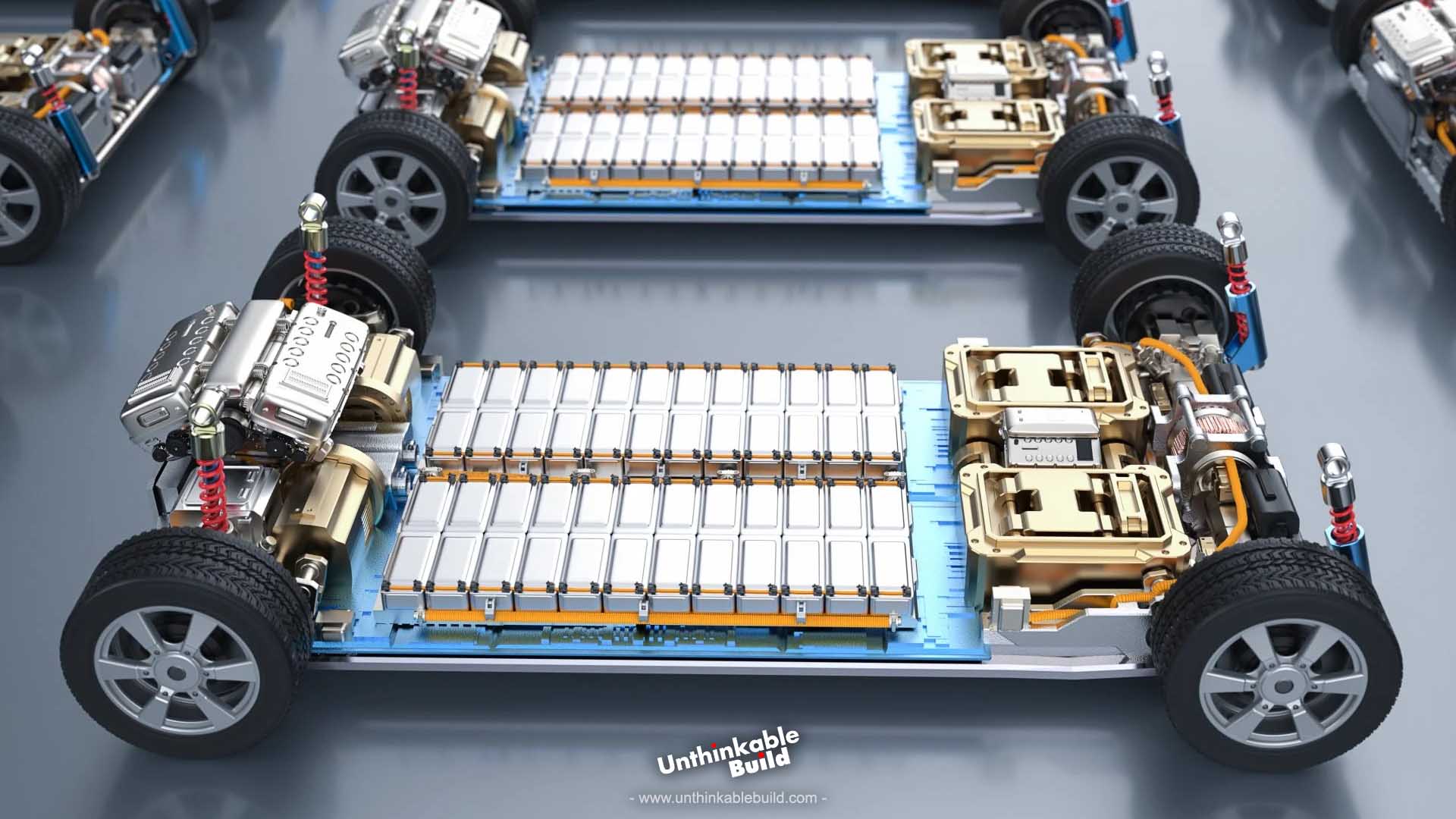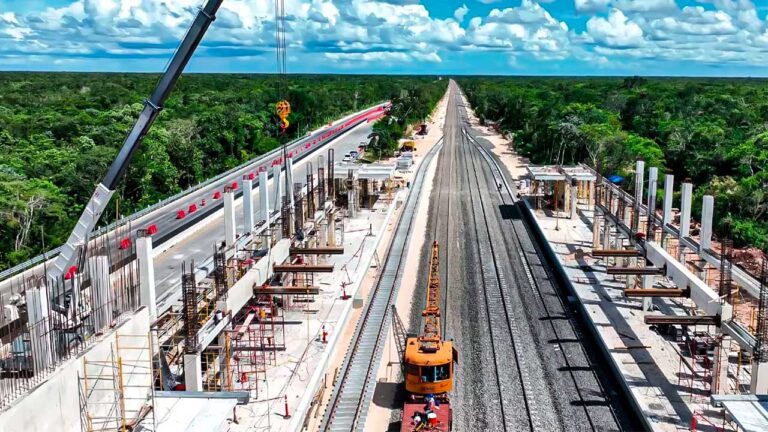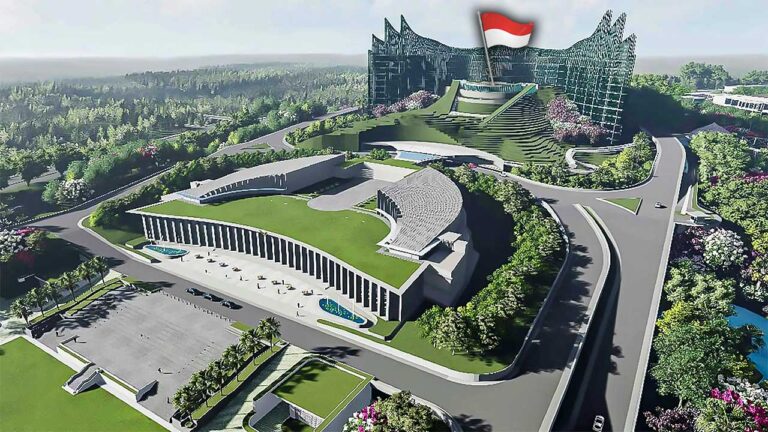Sweden’s Northvolt Ett Gigafactory is Revolutionizing Europe’s EV Industry
As our planet warms, the push for cleaner energy has never been more urgent, and countries around the world are stepping up for renewable energy. Electric vehicles are becoming increasingly popular, and this shift is fueling rapid growth in the industry of lithium-ion battery. In Sweden’s northeastern city, Northvolt Ett is leading the charge, where Northvolt Ett is producing millions of state-of-the-art Lithium-ion batteries for electric vehicles every year. But what really sets this factory apart is its dedication to sustainability, as alongside making new batteries, they also recycle old ones, giving them a second life and reducing waste.
While countries like China are producing cutting-edge Lithium-ion batteries for electric vehicles, Northvolt Ett has something special that makes it stand out from the rest. A few unique features of this Swedish facility set it apart on the global stage.
As global efforts increasingly turn towards renewable energy resources, the spotlight is on tapping into water and wind to generate electricity. Lithium-ion batteries have become the go-to choice for storing this green energy. At the heart of this movement is Northvolt Ett in Sweden, producing enough batteries each year to store 12 Gigawatt hours of energy, most of which are used in electric vehicles.
Lithium-ion batteries were first tested over a century ago, in 1912, but it took until the 1970s for them to become commercially available. Today, these batteries are at the heart of clean energy future, powering everything from our laptops and cellphones to the electric vehicles on our roads.
Also Read: Inside the Billion-Dollar Effort to Save Notre Dame Cathedral
Northvolt Ett, Europe’s largest battery manufacturing plant, began construction in 2017 with a substantial investment of 4 billion euros. Located in the heart of Sweden’s green energy landscape, this state-of-the-art gigafactory is built to deliver annual capacity of 32 to 60 GWh, meeting the growing demand for electric vehicle batteries across the continent. However, Northvolt Ett’s mission goes beyond sheer production volume. The facility is also at the forefront of sustainability by utilizing cutting-edge technology to recycle old batteries. It not only reduces waste significantly, but also conserves valuable energy resources, making it a leader in the global effort to create a circular economy in energy storage.
Spread across 500,000 square meters, Northvolt Ett, Europe’s first homegrown gigafactory is located near the Arctic Circle in Skelleftea city of Sweden. This state-of-the-art facility specializes in manufacturing lithium-ion batteries, with every step, from design and development to assembly. A significant milestone was achieved in December 2021, when the first Lithium-ion battery cell rolled off the production line of this gigafactory, marking a proud moment in European industrial history. What sets Northvolt Ett apart is its commitment to sustainability, by producing batteries with a 90% lower carbon footprint than those made with coal energy.
This factory is powered entirely by renewable energy, contributing to 1.5% of country’s total energy production. Embracing Industry 4.0 technologies, Northvolt Ett integrates automation, machine learning and Internet of Things (IoT) into its operations. Sevel advanced systems and hundreds of automated guided vehicles (AGVs) manage the material flow within the facility, showcasing a high level of technological sophistication.
Sustainability and collaboration are at the heart of Northvolt Ett’s mission. The company works closely with its customers to develop tailor-made solutions that meet specific needs to ensure that every battery cell is ethically sourced and engineered with clean energy principles. This gigafactory is fully connected, employing battery management software and machine learning for product traceability to reinforce its commitment to innovation and sustainability.
This gigafactory is designed with four distinct manufacturing blocks, each one capable of producing 8 GWh of battery capacity every year. Currently, Northvolt Ett is equipped with a well-structured setup that includes three blocks, one specifically for active cathode production and two blocks dedicated to cell manufacturing. This extensive facility is designed to produce up to 32 GWh of lithium-ion batteries annually.
The upstream section of the plant is focused on preparing active materials, which are essential components in battery production to ensure high-quality output. The downstream sections are where the actual manufacturing takes place, including various stages of producing anode, through which the conventional current leaves the device, and cathode electrodes. Material for this process contains lithium, manganese, cobalt and nickel.
These materials are processed into a fine powder, which is layered onto aluminum foils to create cathode electrodes. This production involves chemicals like sodium hydroxide and ammonia, resulting in byproducts that Northvolt Ett treats as valuable resources.
These byproducts are sent to adjacent treatment plant, where they’re purified and reused in battery production. For instance, ammonia is recovered and recycled that reduce the need for fresh supplies. Sodium sulfate, another byproduct, is reclaimed during this process and cleaned instead of being discarded, and in partnership with Swedish startup Cinis, it is used to produce eco-friendly mineral fertilizers with a carbon footprint 75% smaller than traditional ones.
The reason for choosing Northern Sweden for this facility is clear. The region is home to numerous hydro power plants of Sweden, that generate electricity from water without any carbon emissions. This clean energy is vital for Northfold’s mission to produce the green batteries possible.
At Northvolt Ett, there’s a groundbreaking battery recycling program called Revolt that truly makes a difference. The process starts with gathering old batteries of electric vehicles and production scraps from within Northvolt Ett.
The team carefully disassembles batteries to extract valuable materials like nickel, manganese, and cobalt. These materials are then purified through sophisticated hydrometallurgical techniques to meet the international high standards required for new batteries.
The purified minerals from the old batteries are transformed into fresh raw materials for future batteries. The process not only minimizes waste but also reduces the need for new raw material mining, which is a significant win for the environment.
Additionally, the buildings of Northvolt Ett are thoughtfully designed with top-notch insulating materials that keep the temperature comfortable without relying on heating or cooling facilities. This smart design helps reduce environmental impact by saving energy.
But that’s not all. Northvolt Ett also makes the most of waste heat generated from battery production. Instead of letting this heat go to waste, the factory captures it and turns it into electricity. This clever use of excess heat not only powers the gigafactory but also helps cut down on overall energy use.
Also Read: What If World’s Biggest Three Gorges Dam Failed?
Northvolt Ett is on a mission to revolutionize battery production, but not without its challenges. One of the biggest hurdles is the sheer scale and complexity of a gigafactory of this size. Managing supply chain, logistics and coordinating different production blocks is no small task, and ensuring everything runs smoothly is a constant challenge.
Another major focus for this gigafactory is sustainability. Northvolt Ett is determined to produce batteries with as little environmental impact as possible, by carefully sourcing raw materials, optimizing energy use, and handling waste responsibly.
Innovation is also key to the success of Northvolt Ett, staying ahead in the fast-moving world of Lithium-ion battery technology requires continuous research and development. They need to keep pushing the boundaries in cell manufacturing chemistry, safety, and performance.
Northvolt Ett has to stay competitive in a rapidly evolving industry, not only in Europe but around the globe. The success of this gigafactory depends on growing demand for electric vehicles and energy storage systems, and keeping up with market changes is no easy feat.
Northvolt Ett has set an ambitious goal to source about 50% of the raw materials needed for Lithium-ion battery production from recycling by 2030. This commitment highlights the belief that a truly sustainable battery industry starts with effective recycling practices.







